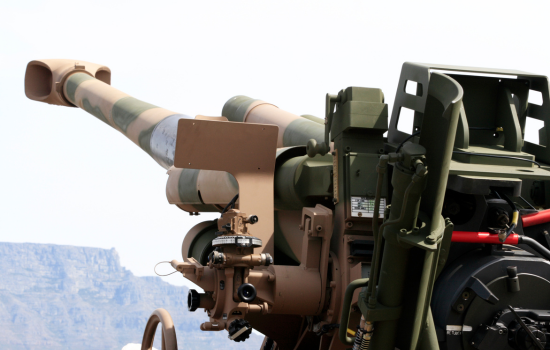Saudi Arabia Confronts Bin Laden Supporters
The housing compounds targeted were mainly inhabited by Americans, Britons and other foreigners, but Saudis living there were killed as well. Shocked by the attack, many Saudis seem to have changed their thinking about al-Qaida. Officials who had previously dismissed the possibility of al-Qaida operating in the kingdom launched a series of highly publicized raids, which led to the discovery of large weapons caches and the arrest of dozens of suspected militants. King Fahd and other members of the royal family, along with Saudi government officials, launched a war of words against extremist ideologies, telling the Saudi public that Islam condemns terrorism and any assistance given to terrorists.
Since the Riyadh bombing, Saudi authorities have been working their way through a list of al-Qaida suspects in the bombing assault that brought Muslim terrorism to the heart of the kingdom. The latest suspect confronted was Zubayr al-Rimi, also known as Sultan Jubran Sultan al-Kahtani; he was killed on 23 September 2003, when Saudi security forces raided an apartment where they said a new terror attack was being planned. Al-Rimi is believed to have been the chief deputy of Abu Bakr al-Azdi, also known as Ali Abd al-Rahman al-Faqasi al-Ghamdi, the former top al-Qaida man in Saudi Arabia, who surrendered to Saudi authorities on 26 June.
Saudi security officials indicated that Abu Bakr al-Azdi and other suspects recently arrested by Saudi authorities hinted that al-Qaida plans to recruit Saudi fighter pilots or commercial pilots to carry out a suicide attack against Israel. The attack would be launched from Tabuk or one of the other northern Saudi military airbases, targeting Eilat, Israel’s southernmost city. Other Israeli cities and facilities could also be targeted by such an attack.
Israeli security and intelligence agencies are taking this scenario very seriously, based on the fact that it combines an operational motive with a viable method of attack. In fact, the seriousness with which Israel regards such a possibility was demonstrated on 24 September 2003, when a Saudi passenger plane enroute from Saudi Arabia to Egypt deviated from its official flight path and entered Israeli airspace. The Israeli Airforce scrambled F-16 fighter jets to identify and intercept the plane. Once radio contact was established, it became clear that there was no malicious intent; the Saudi pilot had mistakenly shifted from his original route. While this incident may be an innocent mistake, some might read into it something more sinister: was this perhaps an attempt to assess the Israeli military’s preparedness ahead of a planned aerial suicide terror attack?
The Saudi security authorities share this concern as well. Radical Islamic sources on the web claim that Saudi security forces have conducted a series of raids in recent days, arresting some 40 people working at the Saudi airbase in Dhahran on suspicion of ties to radical Islamic operatives affiliated with Al-Qaida.[1] Among the detainees, according to these sources, is the commander of a helicopter wing, Lieutenant Colonel Salah Abd al-Hadi al-Khtani. Two pilots were reportedly arrested as well: Major Sultan Bin Shar al-Shahiri and Major Mansour al-Abtah al-Dosari. All of those detained allegedly conducted “illegal gatherings” at the base’s mosque, as well as praising Osama Bin Laden and his ideology of Jihad.[2]
If these allegations are correct, and al-Qaida supporters are indeed active on Saudi military bases, it is a vivid illustration of the way in which radical Islam goes about the business of “Da’awa” (Islamic propaganda). Supporters are sought out as potential recruits – sleeper agents – for future terrorist activities. The ideology of “healing the hearts of the believers” is aimed at creating highly dedicated and motivated supporters, who are kept in reserve for the moment when the operational plans are ripe.
In the Saudi government’s crackdown on Islamic groups after the Riyadh bombing dozens of suspects have been killed in gun battles with security forces. At the same time, Western countries are still concerned that Saudi Arabia is providing only limited cooperation in the war against terrorism, and that some Saudi charities continue to fund organizations like al-Qaida and Hamas.
The United States has assessed that about half of the estimated $50 million budget for Hamas comes from Gulf Cooperation Council states. Further, U.S. officials allege that most of Hamas’ foreign funding comes from Saudi sources. Ironically, an additional $50 million a year comes from fund-raising activities – including criminal activities – in the United States. Whether Saudi authorities – unconstrained by the limitations placed on counter-terrorism in democratic countries – will have any greater success in combating Islamic radicalism than the U.S. government remains to be seen.






